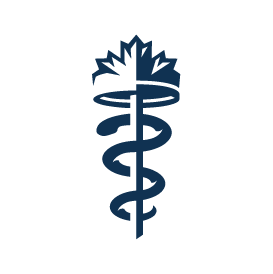- My MOC
- Directory
Menu

 1 MIN READ
1 MIN READ
The Royal College of Physicians and Surgeons of Canada is pleased to announce receipt of a Canadian Institutes of Health Research (CIHR) Catalyst Grant (Policy Research for Health System Transformation- $150,000). Drs. Glen Bandiera, Susan Moffatt-Bruce, former CEO of the Royal College, and Tanya Horsley and a team of collaborators co-led by Dr. Sharon Straus, of St. Michael’s Hospital, will use the funding to explore solutions to meet the critical demand for physicians while also ensuring delivery of high-quality care to the Canadian population.
Although provincial and federal governments have called for plans to accelerate the approval of internationally trained medical graduates (IMGs) to work in hospitals, currently there is no single, efficient, nationally coordinated pathway for approval.
“We are grateful to CIHR for investing in this work to co-develop a national policy, processes and standards for alternative paths to certification and licensure for internationally trained specialists,” says Dr. Bandiera, the nominated principal applicant and executive director of Standards and Assessment at the Royal College.
Dr. Horsley, co-principal applicant and associate director of Research and Evaluation at the Royal College, will lead the foundational scoping review. She confirmed that the research team will look at hospitalists (physicians caring for patients admitted to hospitals, such as those with COVID-19 and other illnesses) as a possible solution to Canada’s physician shortage.
“Given the critical physician shortages and limited entry for hospitalists, an efficient, yet rigorous, system of pathways for certification and licensure for international pediatric and adult hospitalists is urgently needed,” says Dr. Straus, a Tier 1 Canada Research Chair in Knowledge Translation and Physician-in-Chief of St. Michael’s Hospital, in Toronto, Ontario.
“To achieve this goal, coordinating with national and provincial/territorial partners, including IMGs and those responsible for physician training, certification, and licensure, is imperative,” says Dr. Straus.
Research has shown that the 24/7 onsite presence of hospitalists in acute care hospitals has decreased the length of stay and hospital costs, and more importantly, has improved patient satisfaction, patient flow and continuity of care. However, given the lack of accredited training opportunities, demand for hospitalists now outpaces supply in Canada.
For media enquiries:
Melissa Nisbett
mnisbett@royalcollege.ca
Royal College of Physicians and Surgeons of Canada
About the Royal College of Physicians and Surgeons of Canada
The Royal College of Physicians and Surgeons of Canada is the national professional association that pursues excellence in medical education, professional standards, and building physician competence. We protect the health of Canadians by helping physicians build skills, knowledge and expertise through lifelong learning and continuing professional development. We accredit the university programs that train resident physicians for their specialty practices, and we administer the examinations that residents must pass to become certified as specialists. In collaboration with health organizations and government agencies, the Royal College also plays a role in developing sound health policy in Canada. To find out more, please visit royalcollege.ca.